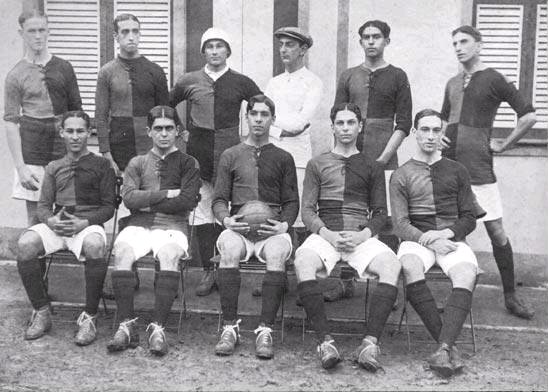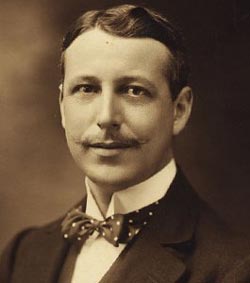|
Estádio Da Rua Bariri
Estádio Mourão Vieira Filho, usually known as Estádio da Rua Bariri, is a football stadium in Olaria neighborhood, Rio de Janeiro, Brazil. The stadium has a maximum capacity of 8,300 people. It was built in 1947. Estádio da Rua Bariri is owned by Olaria Atlético Clube. The stadium is named after Mourão Vieira Filho, who was an alderman (''vereador'', in Portuguese language) and is the one who made possible the stadium construction. ''Bariri'' means rapid in a Tupi–Guarani language, and is the name of the street where the stadium is located. The stadium is often rented to the big clubs of Rio de Janeiro, especially Flamengo, when they are not able to play at the Maracanã stadium. History In 1947, the works on Estádio da Rua Bariri were completed. The inaugural match was played on April 6 of that year, when Fluminense beat Vasco da Gama 4-3. The first goal of the stadium was scored by Vasco da Gama's Friaça Albino Friaça Cardoso (October 20, 1924 – January 12, 20 ... [...More Info...] [...Related Items...] OR: [Wikipedia] [Google] [Baidu] |
Rio De Janeiro
Rio de Janeiro ( , , ; literally 'River of January'), or simply Rio, is the capital of the state of the same name, Brazil's third-most populous state, and the second-most populous city in Brazil, after São Paulo. Listed by the GaWC as a beta global city, Rio de Janeiro is the sixth-most populous city in the Americas. Part of the city has been designated as a World Heritage Site, named "Rio de Janeiro: Carioca Landscapes between the Mountain and the Sea", on 1 July 2012 as a Cultural Landscape. Founded in 1565 by the Portuguese, the city was initially the seat of the Captaincy of Rio de Janeiro, a domain of the Portuguese Empire. In 1763, it became the capital of the State of Brazil, a state of the Portuguese Empire. In 1808, when the Portuguese Royal Court moved to Brazil, Rio de Janeiro became the seat of the court of Queen Maria I of Portugal. She subsequently, under the leadership of her son the prince regent João VI of Portugal, raised Brazil to the dignity of a k ... [...More Info...] [...Related Items...] OR: [Wikipedia] [Google] [Baidu] |
Clube De Regatas Do Flamengo
Clube de Regatas do Flamengo (; English: ''Flamengo Rowing Club''), more commonly referred to as simply Flamengo, is a Brazilian sports club based in Rio de Janeiro, in the neighborhood of Gávea, best known for their professional football team that plays in Campeonato Brasileiro Série A, as well as Campeonato Carioca. The club was first established in 1895 specifically as a rowing club and did not play their first official football match until 1912. Flamengo's traditional uniform features red and black striped shirts with white shorts, and red and black striped socks. Flamengo has typically played their home matches in the Maracanã, the national stadium of Brazil, since its completion in 1950, with some exceptions in recent years. Since 1969, the vulture (Portuguese: ''urubu'') has been the most recognized mascot of Flamengo. Flamengo established themselves as one of Brazil's most successful sports clubs in the 20th century during the era of state leagues in Brazil w ... [...More Info...] [...Related Items...] OR: [Wikipedia] [Google] [Baidu] |
Sports Venues In Rio De Janeiro (city)
Sport pertains to any form of competitive physical activity or game that aims to use, maintain, or improve physical ability and skills while providing enjoyment to participants and, in some cases, entertainment to spectators. Sports can, through casual or organized participation, improve participants' physical health. Hundreds of sports exist, from those between single contestants, through to those with hundreds of simultaneous participants, either in teams or competing as individuals. In certain sports such as racing, many contestants may compete, simultaneously or consecutively, with one winner; in others, the contest (a ''match'') is between two sides, each attempting to exceed the other. Some sports allow a "tie" or "draw", in which there is no single winner; others provide tie-breaking methods to ensure one winner and one loser. A number of contests may be arranged in a tournament producing a champion. Many sports leagues make an annual champion by arranging games in a ... [...More Info...] [...Related Items...] OR: [Wikipedia] [Google] [Baidu] |
Bangu Atlético Clube
Bangu Atlético Clube, commonly known as Bangu, is a Brazilian professional association football club based in Rio de Janeiro, in the western neighbourhood of Bangu. The team plays in Série D, the fourth tier of the Brazilian football league system, as well as in the Campeonato Carioca, the top tier of the Rio de Janeiro state football league. The club competed in the Campeonato Brasileiro Série A several times, finishing as runner-up in 1985. Their home stadium is the Estadio Moça Bonita, which has a capacity of 15,000. History The club has its origins in Fábrica Bangu (Bangu Factory), located in Bangu neighborhood, Rio de Janeiro. Some Britons that worked at the factory, especially Thomas Donohoe, introduced football to the factory workers by bringing footballs to the place and organizing the first football match in Brazil. In December 1903, Andrew Procter suggested the foundation of a club, when he realized how enthusiastic his colleagues were for football. The ... [...More Info...] [...Related Items...] OR: [Wikipedia] [Google] [Baidu] |
Friaça
Albino Friaça Cardoso (October 20, 1924 – January 12, 2009), best known as simply Friaça (), was a Brazilian football striker. He was born in Porciúncula. During his career (1944 – 1955) he played for Vasco da Gama, São Paulo and Ponte Preta. He won two Rio de Janeiro State Tournaments (1947, 1952), one São Paulo State Tournament (1949, in which he was also the top goalscorer), and the South American Championship of Champions (1948). With the Brazil national team he won one Copa América in 1949, and participated at 1950 FIFA World Cup, playing 4 matches and scoring the opening goal in the title-deciding match against Uruguay, which Brazil lost 1–2. He died in Itaperuna Itaperuna () is a municipality in the Brazilian state of Rio de Janeiro. It had a population of 103,800 in 2020, and has an area of 1.105,3 km2. History Itaperuna was founded in 1889, after being separated from the municipality of Campos do ... in January 2009, aged 84, of pneumonia ... [...More Info...] [...Related Items...] OR: [Wikipedia] [Google] [Baidu] |
Club De Regatas Vasco Da Gama
Club de Regatas Vasco da Gama (), commonly referred as Vasco da Gama or simply Vasco, is a professional sports club based in Rio de Janeiro, Brazil. Originally a rowing club, Vasco is mostly known for its football team, who it currently competes in the Brasileirão Série A, the top tier of Brazilian football league and in the Cariocão Série A, the top tier of Rio de Janeiro state football league. Named Vasco da Gama 400 years after 1498 European-Asian sea route, the club was founded in 21 August 1898 as a rowing club by Brazilian workers and Portuguese immigrants tradesmen, and created it football department in 26 November 1915.História 1898–1923' NetVasco.com Vasco da Gama plays their home matches in São Januário stadium since 1927, and also in Maracanã stadium since 1950. Vasco da Gama is one of the most widely supported teams in Brazil and the Americas. According to census and polls, Vasco is the fifth-most supported club in Brazil, with more than 15 million ... [...More Info...] [...Related Items...] OR: [Wikipedia] [Google] [Baidu] |
Fluminense Football Club
Fluminense Football Club (), known as Fluminense, is a Brazilian sports club best known for its professional football team that competes in the Campeonato Brasileiro Série A, the first tier of Brazilian football and the Campeonato Carioca, the state league of Rio de Janeiro. The club is based in the neighbourhood of Laranjeiras since its foundation, in 1902. Fluminense is the oldest football club of Rio de Janeiro. The club was founded on 21 July 1902 and Oscar Cox was its first elected president. Fluminense have since been crowned national champions four times, most recently in the 2012 Campeonato Brasileiro Série A, the team have also won the 2007 Copa do Brasil, the 1999 Campeonato Brasileiro Série C and the 1952 Intercontinental Cup. In 1949, Fluminense became the first football club in the world to receive the Olympic Cup, awarded annually by the International Olympic Committee to an institution or association with a record of merit and integrity in actively developin ... [...More Info...] [...Related Items...] OR: [Wikipedia] [Google] [Baidu] |
Tupi–Guarani Languages
Tupi–Guarani () is the most widely distributed subfamily of the Tupian languages of South America. It consists of about fifty languages, including Guarani and Old Tupi. The words ''petunia, jaguar, piranha, ipecac, tapioca, jacaranda, anhinga, carioca'', and ''capoeira'' are of Tupi–Guarani origin. Classification Rodrigues & Cabral (2012) Rodrigues & Cabral (2012) propose eight branches of Tupí–Guaraní: *Guaraní (Group I) * Guarayu (Group II): Guarayu, Pauserna**, Sirionó (dialects: Yuqui, Jorá**) *Tupí (Group III): Old Tupi (lingua franca dialect: Tupí Austral), Tupinambá (dialects: Nheengatu, Língua Geral as lingua franca, and Potiguára), Cocama–Omagua*, Tupinikin** * Tenetehara (Group IV): Akwáwa (dialects: Asuriní, Suruí do Pará, Parakanã), Avá-Canoeiro, Tapirapé, Tenetehára (dialects: Guajajara, Tembé), Turiwára * Kawahíb (Group VI): Apiacá, Kawahíb (numerous varieties; incl. Piripkúra, Diahói?), Kayabí, Karipúna, ? Uru-Pa-I ... [...More Info...] [...Related Items...] OR: [Wikipedia] [Google] [Baidu] |
Rio De Janeiro (state)
Rio de Janeiro () is one of the 27 federative units of Brazil. It has the second largest economy of Brazil, with the largest being that of the state of São Paulo. The state, which has 8.2% of the Brazilian population, is responsible for 9.2% of the Brazilian GDP. The state of Rio de Janeiro is located within the Brazilian geopolitical region classified as the Southeast (assigned by IBGE). Rio de Janeiro shares borders with all the other states in the same Southeast macroregion: Minas Gerais ( N and NW), Espírito Santo ( NE) and São Paulo ( SW). It is bounded on the east and south by the South Atlantic Ocean. Rio de Janeiro has an area of . Its capital is the city of Rio de Janeiro, which was the capital of the Portuguese Colony of Brazil from 1763 to 1815, of the following United Kingdom of Portugal, Brazil and the Algarves from 1815 to 1822, and of later independent Brazil as a kingdom and republic from 1822 to 1960. The state's 22 largest cities are Rio de Janeiro, São G ... [...More Info...] [...Related Items...] OR: [Wikipedia] [Google] [Baidu] |
Portuguese Language
Portuguese ( or, in full, ) is a western Romance language of the Indo-European language family, originating in the Iberian Peninsula of Europe. It is an official language of Portugal, Brazil, Cape Verde, Angola, Mozambique, Guinea-Bissau and São Tomé and Príncipe, while having co-official language status in East Timor, Equatorial Guinea, and Macau. A Portuguese-speaking person or nation is referred to as " Lusophone" (). As the result of expansion during colonial times, a cultural presence of Portuguese speakers is also found around the world. Portuguese is part of the Ibero-Romance group that evolved from several dialects of Vulgar Latin in the medieval Kingdom of Galicia and the County of Portugal, and has kept some Celtic phonology in its lexicon. With approximately 250 million native speakers and 24 million L2 (second language) speakers, Portuguese has approximately 274 million total speakers. It is usually listed as the sixth-most spoken language, the third-most sp ... [...More Info...] [...Related Items...] OR: [Wikipedia] [Google] [Baidu] |






